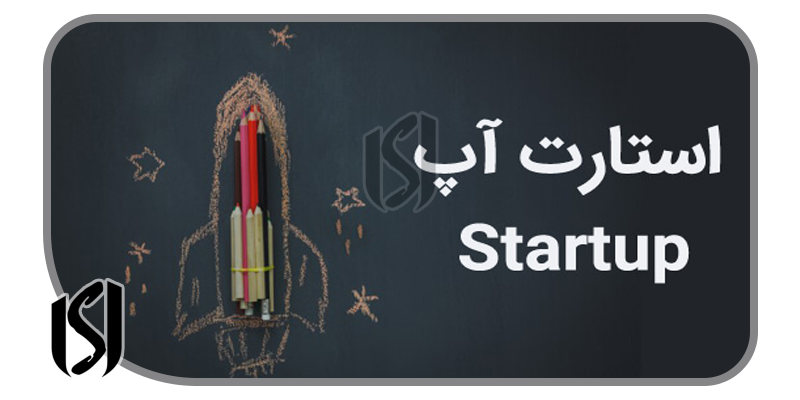
Startup Definition
- هلدینگ ترکیه با ما
- مارس 13, 2023
- BlogEN
- network in Turkiye, start-up in Turkiye, startups in Turkiye, target market in Turkiye
- 0 دیدگاه
What is a startup?
Startup refers to a newly established company or business venture that aims to meet a specific need or solve a particular problem in the market. The term is commonly used in the context of technology companies, which often have innovative or disruptive ideas and operate in fast-paced and rapidly evolving industries. Startups typically rely on funding from investors or venture capitalists to support their growth and development.
What ideas are suitable for startups in Turkiye?
There are many great startup ideas that could be suitable for Turkiye, depending on various factors such as market demand, local resources, and industry trends. Here are a few potential startup ideas that could work well in Turkiye:
E-commerce platform: Turkiye has a large and growing e-commerce market, with increasing numbers of consumers shopping online. An e-commerce platform that offers a unique or specialized product range could be a great opportunity.
Healthtech: Turkiye has a strong healthcare sector, and there is a growing demand for digital health solutions. A healthtech startup that offers telemedicine services or medical device technology could be successful.
Food delivery service: With a large and urbanized population, there is a growing demand for food delivery services in Turkiye. A startup that offers a unique food delivery model or specializes in a particular cuisine could be successful.
Renewable energy: Turkiye has a significant potential for renewable energy, and there is a growing interest in sustainable solutions. A startup that offers renewable energy solutions, such as solar panels or wind turbines, could be successful.
Edtech: Turkiye has a young and tech-savvy population, and there is a growing demand for online learning and education technology. An edtech startup that offers innovative and engaging learning experiences could be successful.
Of course, there are many other potential startup ideas that could work well in Turkiye, and it’s important to conduct thorough research and analysis to identify the best opportunities.

How to start a startup in Turkiye?
Starting a startup in Turkiye is similar to starting one in other countries. Here are some steps you can follow:
Identify a business idea: The first step is to come up with a business idea that you believe has potential in the Turkish market. Consider factors such as local demand, competition, and available resources.
Conduct market research: Once you have a business idea, conduct market research to evaluate its potential. This can involve analyzing the target market, identifying competitors, and gathering data on consumer preferences and behaviors.
Create a business plan: Use the insights from your market research to create a detailed business plan. This should include information on your product or service, target market, marketing strategy, and financial projections.
Register your company: In Turkiye, you will need to register your company with the Trade Registry Office (Ticaret Sicil Müdürlüğü) and obtain a tax number from the Tax Office (Vergi Dairesi). You may also need to obtain permits or licenses depending on your business type.
Secure funding: Once you have registered your company, you may need to secure funding to launch and grow your startup. This can involve seeking investment from venture capitalists, angel investors, or crowdfunding platforms.
Hire a team: As your startup grows, you may need to hire employees to help manage operations, marketing, and other aspects of your business.
Launch and grow your startup: Finally, launch your startup and focus on growing your customer base, improving your product or service, and expanding your business. This will involve ongoing market research, refining your business strategy, and adapting to changes in the market.
Starting a startup in Turkiye can be a challenging but rewarding experience. By following these steps and seeking advice and guidance from local resources, you can increase your chances of success.
What kind of equipment and financial resources are suitable for startups in Turkiye?
The type of equipment and financial resources that are suitable for a startup in Turkiye will depend on the nature of the business. However, here are some general types of equipment and financing options that could be appropriate for startups in Turkiye:
Equipment: The type of equipment needed will depend on the nature of the business. For example, a software startup may require computers and servers, while a manufacturing startup may require specialized machinery. Equipment leasing or rental may be a more cost-effective option for startups with limited capital.
Seed funding: Seed funding is typically used to cover initial costs associated with starting a business, such as market research, product development, and company registration. Startups in Turkiye can access seed funding from a variety of sources, including government grants, angel investors, and crowdfunding platforms.
Venture capital: Once a startup has gained traction and is ready to scale, it may require significant capital to fund growth. Venture capital is a common source of funding for startups in Turkiye and can provide the necessary resources to expand operations and increase market share.
Bank loans: Traditional bank loans are also an option for startups in Turkiye, although they may be more difficult to obtain than other forms of financing. Banks will typically require a solid business plan and collateral to secure the loan.
Accelerator programs: Accelerator programs provide startups with resources such as mentorship, office space, and networking opportunities, in exchange for equity in the company. There are a number of accelerator programs in Turkiye that can help startups get off the ground and grow quickly.
Ultimately, the key to selecting the right equipment and financing options for a startup in Turkiye is to thoroughly research and evaluate the options available, and to tailor them to the specific needs of the business.
How can I define and reach my target market in Turkiye?
Defining your target market in Turkey is a critical step in launching a successful startup. Here are some steps you can take to identify and reach your target market:
Conduct market research: Market research is essential to understanding the needs and preferences of your target market. This can involve analyzing demographic data, surveying potential customers, and gathering insights from industry experts.
Identify customer pain points: By understanding the challenges and pain points of your target customers, you can develop products or services that address their needs and differentiate your startup from competitors.
Evaluate competition: Analyzing your competitors can help you identify gaps in the market and potential opportunities to differentiate your business. This can involve researching their products or services, pricing strategies, and marketing tactics.
Develop buyer personas: Buyer personas are fictional representations of your ideal customers, based on characteristics such as age, gender, income, and interests. By creating buyer personas, you can better understand the needs and behaviors of your target market and tailor your marketing efforts accordingly.
Choose marketing channels: Once you have identified your target market and developed buyer personas, you can select marketing channels that are most likely to reach your audience. This can involve social media marketing, content marketing, search engine optimization, and paid advertising.
Test and iterate: Finally, it’s important to test and iterate your marketing efforts to determine what resonates with your target market. This can involve running A/B tests, analyzing metrics, and making adjustments as needed.
By following these steps and seeking advice and guidance from local resources, you can increase your chances of success in reaching and engaging your target market in Turkiye.
How can I form a suitable team for my startup in Turkiye?
Building a strong team is critical to the success of any startup, including those based in Turkiye. Here are some steps you can take to build a successful startup team in Turkiye:
Define your hiring needs: Start by identifying the skills and expertise you need to bring your product or service to market. This can involve creating job descriptions for key positions, such as developers, marketers, and salespeople.
Tap into local networks: To find potential candidates, tap into local networks such as industry associations, universities, and startup incubators. Attend networking events and reach out to individuals who may be a good fit for your team.
Leverage job boards: Job boards such as LinkedIn and Indeed can be a valuable resource for finding candidates with the skills and experience you need. You can also consider posting job openings on local job boards or startup websites.
Conduct thorough interviews: When interviewing candidates, be sure to ask questions that assess their skills, experience, and cultural fit. Consider using behavioral interviewing techniques that focus on past performance and problem-solving skills.
Offer competitive compensation: To attract top talent, it’s important to offer competitive compensation packages that include salary, equity, and benefits. Research local compensation trends to ensure your offers are in line with industry standards.
Build a strong company culture: Finally, building a strong company culture is essential to retaining employees and keeping them engaged. This can involve creating a mission statement, offering training and development opportunities, and providing a supportive and collaborative work environment.
By following these steps and seeking advice and guidance from local resources, you can build a successful startup team in Turkiye that can help bring your product or service to market and drive growth.
How can I add startups to my network in Turkiye?
Expanding your startup network in Turkiye is an important step in building relationships, gaining valuable insights, and potentially finding new opportunities. Here are some steps you can take to expand your startup network in Turkiye:
Attend local startup events: Attend events such as startup conferences, meetups, and networking events. These events provide opportunities to meet other entrepreneurs, investors, and industry experts.
Join local startup communities: Join online communities such as startup forums, LinkedIn groups, and Facebook groups. These communities allow you to connect with other entrepreneurs and share knowledge and advice.
Collaborate with other startups: Seek out opportunities to collaborate with other startups in your industry. This can involve partnerships, joint marketing campaigns, or even co-working spaces.
Seek mentorship and advice: Identify experienced entrepreneurs or industry experts who can provide guidance and advice on building and growing your startup. This can involve joining a mentorship program or seeking out individual mentors.
Participate in startup accelerators: Consider joining a startup accelerator program in Turkiye. These programs offer resources, mentorship, and funding opportunities to help startups grow and scale.
Leverage social media: Use social media platforms such as LinkedIn, Twitter, and Instagram to connect with other entrepreneurs, investors, and industry experts. Engage with their content and share your own insights and experiences.
By taking these steps and actively engaging with the startup community in Turkiye, you can expand your network and potentially find new opportunities for growth and success.

What documents are required for a start-up in Turkiye?
The required documents for starting a business in Turkey depend on the type and size of the startup, as well as the legal structure chosen. Here are some of the common documents and registrations required for a startup in Turkiye:
Trade Registry: This is the first and most important step in registering a company in Turkiye. You will need to submit a Trade Registry Application Form and other necessary documents such as your passport or identity card, and proof of address.
Tax Registration: After registering your company, you will need to obtain a tax number from the local tax office. This will enable you to issue invoices and pay taxes.
Work Permits: If you are a foreigner planning to work in Turkiye, you will need a work permit. The requirements and process for obtaining a work permit can vary depending on your nationality and the type of work you will be doing.
Business License: Some types of businesses require a business license or permit to operate legally in Turkiye. This can include industries such as finance, healthcare, and food service.
Intellectual Property Protection: Protecting your intellectual property (IP) is important for startups. You may need to register trademarks, patents, and copyrights to prevent others from using your ideas or products without permission.
Environmental Permits: Depending on the nature of your business, you may need to obtain environmental permits to ensure compliance with local regulations.
Insurance: It is important to have insurance coverage to protect your startup from potential risks and liabilities. This can include business liability insurance, property insurance, and workers’ compensation insurance.
These are some of the common documents and registrations required for starting a business in Turkiye. However, it is important to consult with a local expert to ensure compliance with all relevant regulations and requirements.
How can I deal with legal and financial problems in the startup field in Turkiye?
Dealing with legal and financial challenges is an inevitable part of running a startup in Turkiye, and there are several ways to approach these challenges:
Seek Legal Advice: It is important to consult with a lawyer who is familiar with Turkish business law and can provide guidance on legal issues such as contracts, intellectual property protection, and employment regulations.
Hire a Financial Advisor: A financial advisor can help you manage your finances and ensure compliance with tax laws and regulations. They can also provide guidance on fundraising and investment strategies.
Stay Informed: Keeping up-to-date with changes in regulations and laws that affect your business is crucial. This can involve monitoring news outlets, attending industry events, and joining relevant professional organizations.
Build a Support Network: Networking with other entrepreneurs and professionals in your industry can provide valuable support and advice. Joining business associations and attending industry events can help you connect with others who have faced similar challenges.
Be Proactive: It is important to address legal and financial issues as soon as they arise, rather than waiting until they become major problems. Being proactive can help you minimize potential risks and avoid costly mistakes.
By taking these steps and being proactive in addressing legal and financial challenges, you can better navigate the complex landscape of starting and running a business in Turkiye.
What methods are there to attract investors and financial support in Turkiye?
There are several ways to attract investors and secure financial support for your startup in Turkiye:
Angel Investors: Angel investors are wealthy individuals who provide early-stage funding to startups. In Turkiye, there are several angel investor networks, such as Galata Business Angels and Istanbul Startup Angels, that provide funding and mentorship to startups.
Venture Capital Firms: Venture capital firms provide funding to startups in exchange for equity in the company. In Turkiye, there are several venture capital firms, such as 212 Capital Partners and Earlybird Venture Capital, that focus on investing in startups.
Government Support: The Turkish government offers several programs and initiatives to support startups, such as the Technology Development Foundation of Turkiye (TTGV) and the Small and Medium Enterprises Development Organization (KOSGEB). These programs provide funding, mentorship, and other resources to startups.
Crowdfunding: Crowdfunding platforms, such as Kickstarter and Indiegogo, allow startups to raise funds from a large number of individuals. This can be an effective way to raise funds and generate interest in your startup.
Corporate Partnerships: Partnering with established corporations can provide funding and other resources to startups. In Turkiye, there are several corporations, such as Turkcell and Garanti BBVA, that have startup accelerator programs and invest in early-stage startups.
By exploring these options and developing a strong pitch and business plan, you can increase your chances of attracting investors and securing financial support for your startup in Turkiye.
What plans are there to expand startups and business development in Turkiye?
There are several programs available to support the expansion of startups and business development in Turkiye. Some of these programs include:
StartUp Istanbul: This program aims to connect startups with investors, mentors, and other resources to help them grow and scale their businesses.
Turkiye Innovation and Entrepreneurship Week: This event brings together entrepreneurs, investors, and policymakers to discuss the latest trends in innovation and entrepreneurship.
KOSGEB: This is a government-funded agency that provides support to small and medium-sized enterprises (SMEs) in Turkiye, including funding, training, and advisory services.
Turkiye Technology Team Foundation: This foundation provides support to startups and entrepreneurs in the tech sector, including mentorship, networking opportunities, and funding.
Istanbul Startup Angels: This organization connects startups with angel investors and provides mentorship and training to help startups succeed.
Overall, there are many programs and resources available to support startups and business development in Turkiye. Entrepreneurs and business owners should take advantage of these resources to help their businesses grow and succeed.
Are startups in Turkiye supported by the Turkish government?
Yes, the Turkish government provides support for startups in Turkiye. The government has implemented various programs and initiatives to promote entrepreneurship and innovation in the country, including providing funding, mentorship, and training for startups. The Small and Medium Enterprises Development Organization (KOSGEB) is a government-funded agency that provides support to small and medium-sized enterprises, including startups, in Turkiye. Additionally, the government has introduced tax incentives and other benefits for startups to encourage their growth and success. Overall, the Turkish government is supportive of the startup ecosystem and is working to create a favorable environment for entrepreneurship in the country.
Overall, with the supportive and facilitating programs implemented in Turkiye to expand startups and new businesses, this country is recognized as one of the best business and technology environments in the Middle East.
To receive consultation regarding startups and launching new businesses, you can contact “WITH US” group. “WITH US” is a specialized reference in consultation and support for startups and new businesses, consisting of a team of experienced experts and consultants in this field.
This group aims to assist the growth and development of startups by providing consultation services, designing and implementing marketing strategies, developing business plans, providing accounting and financial services, offering legal services, and consulting on tax-related issues.
For more information or to request consultation with “WITH US” group, you can contact them.


یک دیدگاه ارسال کنید